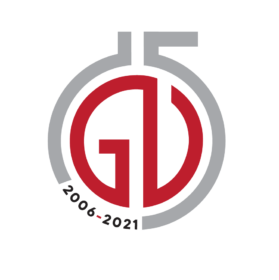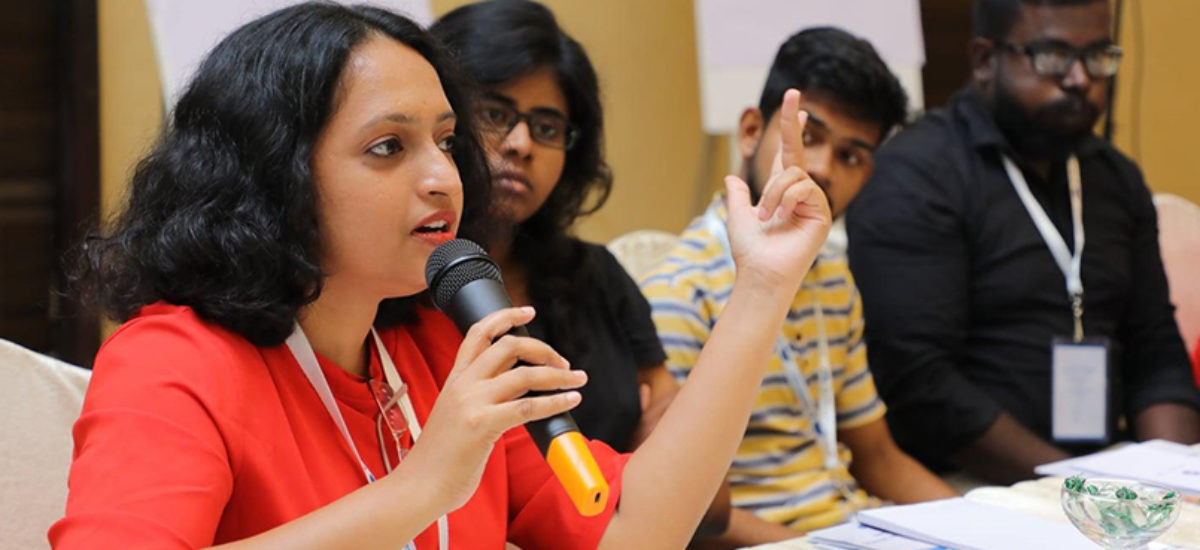Photo courtesy of Sri Lanka Development Journalists Forum
The theme of International Women’s Day 2021 is “Choose to Challenge”
In the past several years, we can see that a remarkable change has been occurring in Sri Lanka. A society which is disproportionally dominated by male voices and perspectives, has seen and heard the emergence of a vibrant group of female journalists, activists, business leaders and communicators. Collectively, their work is changing the status and recognition of women in this country.
Some of the most skilled and ethical journalists, medical and legal professionals, corporate personnel and entrepreneurs are women. Many women working in the field of media are also excellent online networkers and communicators, and actively use their social media platforms to convey their ideas and opinions. What is most notable in contrast to a prevailing belief that women are competing with each other and don’t like to see another woman’s success is that they are also active supporters of other women.
These women, in their 30s and 40s, with 15 to 20 years frontline experience in the media industry, have created a far better environment for those that came after them. They have established themselves as independent thinkers and can voice their disapproval of public decisions openly and without bias. Many of these women generously share the platforms they have created to promote other emerging people and their projects.
Each of them has undoubtedly experienced sexism, condescension, stereotyping, belittlement and attempts to threaten and influence or silence them, and many have received messages or decrees to incentivize them to modify their views. In the face of this, and the rise in online cyber violence targeting outspoken women, they have maintained their presence and continue to have their say.
The younger women writers and activists in their 20s are qualified, educated, witty and eloquent. They face and take on the relentless barrage of chauvinism and toxic masculinity, often on a daily basis, and do not give ground. They are not shamed or silenced. Some are seen as pushy and self-serving but the coteries they form do not just mindlessly endorse and support them but also critique their approach, ensuring that there is there is alignment between the walk and the talk.
If Sri Lankan society is to modernize itself in alignment with more progressive social values, the erasure, diminishment and marginalization of women must cease. Women who speak up against gender-based crimes, offenses and disrespect are outnumbered in politics and government and intimidated and controlled by adverse social and cultural commentary, which punish them for their articulacy.
They are characterized as angry or humorless or unattractive. The activists among them are described as perpetually offended. Their public responses to serious matters such as the erosion of civil rights and the diminishment of safety for minority groups are sneered at. We have a distance to go before gender discrimination will disqualify a person for a role of authority and influence, or unacceptable, inappropriate and unethical conduct would render ministers unelectable.
Several of the best female journalists describe the excellent mentorship, respect and encouragement they received from established senior male journalists and editors in their formative apprentice years. In a patriarchal society, this generous support and recognition of female talent from men who are their bosses and employers is not a given. The loyalty and bonds formed between women whose professional life begins in this kind of positive and affirming situation are often lifelong.
The kinds of stories that are reported in both the mainstream and alternative media, and the ways in which stories of female experience are specifically framed and represented, will change under the emerging influence of these women. Their commitment and dedication to balanced and unbiased, wholistic reporting will provide the missing perspective that has made our news commentary and media stories so one-dimensional and unrepresentative.
Politically and in corporate and administrative sectors, the notable absence and minimization of women in positions of influence needs to be perceived as a loss of quality and competence to any governing body, whether public or private.
Women who have broken through gender barriers to achieve success and recognition in their fields are inevitably targets of petty jealousy. This can take the form of undermining background noise and erosion from both men and women who are threatened by an emerging force to be reckoned with. This is due to the performance-based and competitive culture in which they have been educated and trained.
It is vitally important in this context that women support other women through constructing professional and social networks, which positively increase the presence and impact of women in both public and private spheres.
Systemic change requires that every girl and woman in a leadership capacity in every tier of society should consciously use her position to advance women and recognize and reward their excellence. Recognizing the patterns of erosion of dignity and value that occur across the society, we can provide resources and support for each other.
Last year, several women joined forces to start an initiative called “Balance The Panel”, which sent a shout out to over 200 women across 15 spheres of professional activity to collate details of their industry experience, capability and skills on a digital platform. This information is now accessible to everyone who is organizing speakers, presenters and panellists for public discussions and symposia.
Instead of being treated as optional accessories, invisible, outnumbered, marginalized and talked over, qualified women could be respected and positioned to express their excellence in ways that would openly inform and educate the public. They could be visible and audible. They would not only participate in the public discourse and report it; they could form it and shape it.
For this to take place, the barriers standing in their way need to be systematically challenged, questioned and worn down. Society as a whole loses significant value when half the society is not participating fully in its processes of governance and operation.
Many individuals have started initiatives to prompt social change in response to the frustrations women face as a gender. Gender based violence, generational poverty, lack of universal sex education, psychological support, awareness of the need for planned pregnancy, gender based education disparity, and economic hardship are all issues that have prompted groups like Women In Need and the End Sexual Violence Now campaign to start connecting to support each other’s campaigns and recognize each other’s work and the ongoing challenges.
#Choosetochallenge is the theme of International Women’s Day, this year. Let’s be the change and take the challenge.


